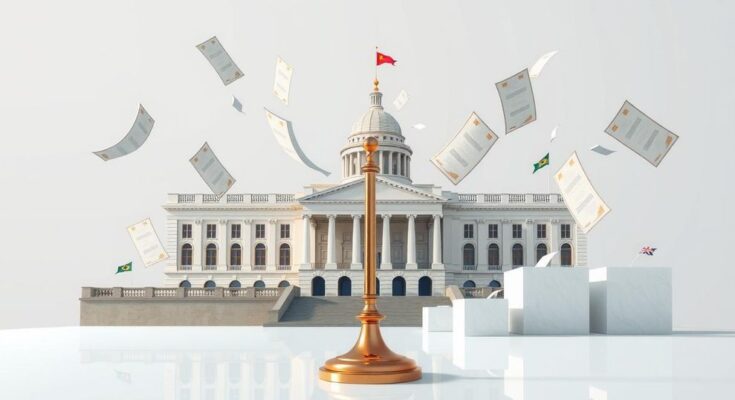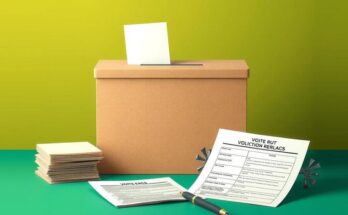Germans will vote on February 23 amid concerns over security and government stability after Chancellor Olaf Scholz’s coalition collapse. The rise of the far-right AfD and the dynamics of current party polling indicate a competitive electoral environment. Recent security incidents have heightened political tension, with public figures voicing criticisms of the Chancellor, framing the election as crucial for Germany’s future.
On February 23, Germans will cast their votes in a federal election following the collapse of Chancellor Olaf Scholz’s coalition government last November. The recent state elections showcased a significant rise in popularity for the far-right Alternative for Germany (AfD), particularly evident in Brandenburg where Scholz’s Social Democrats narrowly retained their position. Notably, the AfD achieved a remarkable victory in Thuringia on September 1, indicating a shift in the political landscape.
Current polling indicates that the Christian Democratic Union (CDU/CSU) holds 30% of the vote share, followed closely by the AfD at 15.9%. The Social Democratic Party (SPD) also secured 13.9%, while the Green Party recorded 11.9%. Other parties, including the Free Democrats and those with smaller political platforms, account for the remaining percentages. This polling trend suggests a competitive race as multiple parties vie for influence.
The lead-up to the February election is underscored by heightened concerns regarding security, particularly following tragic incidents that have occurred in Germany. Reports regarding a suspect identified as a Saudi refugee, who harbored anti-Muslim sentiment, have further complicated the electoral discourse. Such circumstances have amplified fears about national safety, intensifying voter scrutiny.
Notable public figures, including tech mogul Elon Musk, have been vocal about their opinions, criticizing Chancellor Scholz. Musk described him as an “incompetent fool” while discussing the implications of recent events. Additionally, there is a growing narrative promoted by some political allies that suggests, “Only the AfD can save Germany,” which highlights the party’s effort to position itself as a strong alternative to the current leadership.
The upcoming federal election in Germany reflects a tumultuous political climate following the disintegration of Chancellor Olaf Scholz’s coalition government. The rise of the AfD indicates a growing polarisation in German politics, with far-right sentiments gaining traction, particularly among voters concerned about national security and immigration issues. This scenario is further complicated by societal debates concerning the effectiveness of the current government in addressing these concerns.
In conclusion, the February 23 federal election represents a pivotal moment in Germany’s political trajectory, fueled by recent state election results showing significant support for the AfD. As security concerns dominate discussions, various political parties are intensifying their campaigns to capture undecided voters, making this a crucial electoral battle. The response from public figures further illustrates the intensity of sentiment surrounding this election.
Original Source: www.politico.eu




